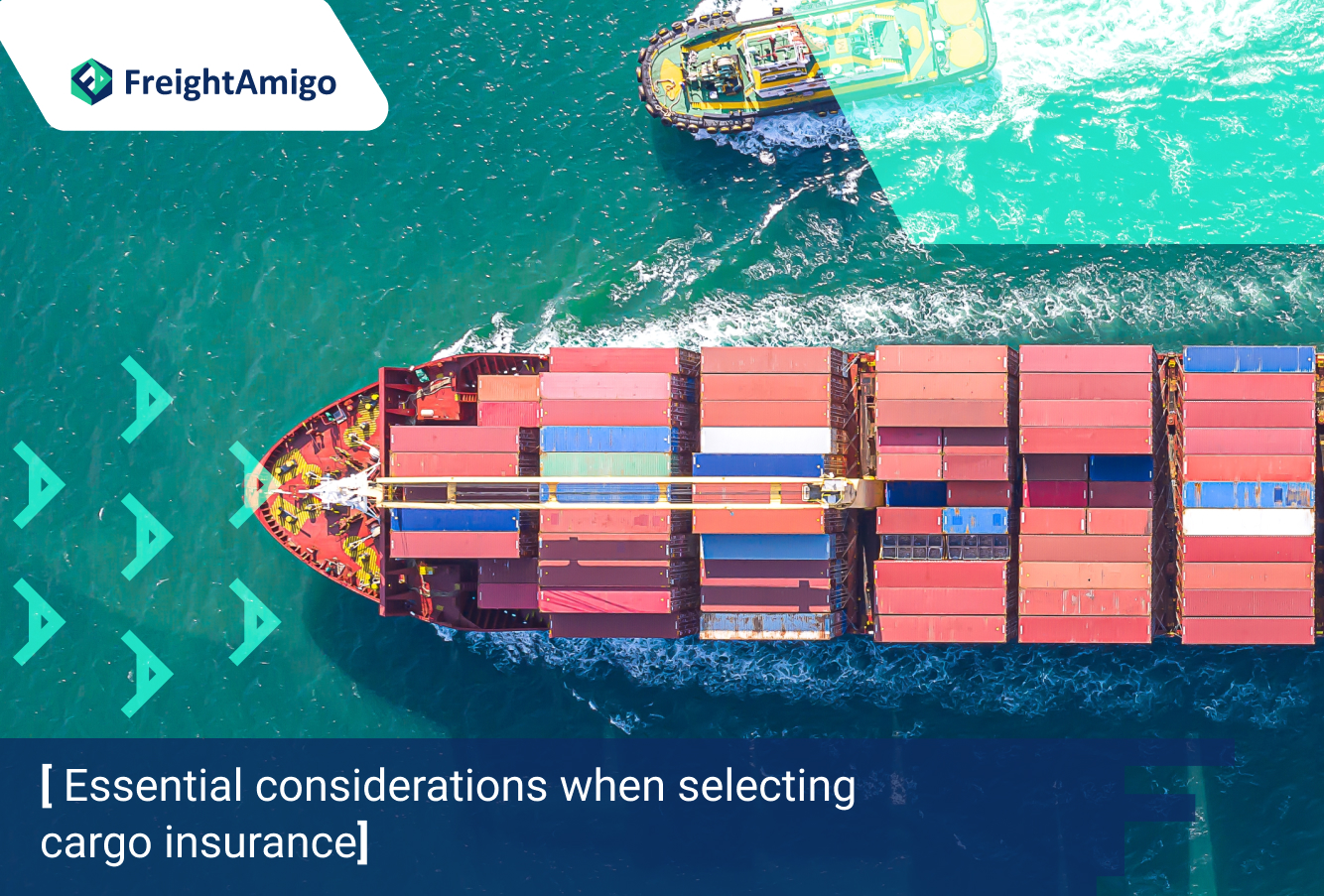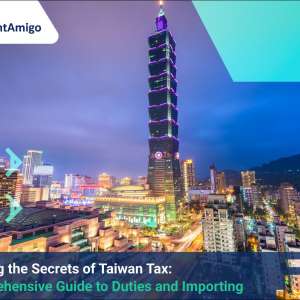Author Name: Tiffany Lee – Marketing Analyst at FreightAmigo
Ensuring your company’s financial investment in transit goods is vital, particularly when those goods are shipped internationally to reach their destinations. It’s beneficial to thoroughly assess various factors when deciding how to insure your goods, even if your supplier proposes to handle cargo insurance. You understand your business needs best, including those related to cargo insurance.
Want To Compare The Best Express, Air Freight, Sea Freight, Rail Freight & Trucking Rates So As To Have Better Control On Cost?
Here are essential considerations when selecting cargo insurance:
Insurance Provider Reliability
If your vendor provides insurance, confirm that claims can be settled in the destination country, understand the policy’s terms and coverage, and ensure it’s underwritten by a reputable insurer with a local presence. It’s common to encounter difficulties in claim settlements with foreign insurers, especially with substantial claims.
Policy Exclusions and Coverage
It’s crucial to recognize what the policy excludes and the types of losses it covers. Understanding these details helps you choose the most suitable policy for your business needs, covering potential risks like accidents, theft, or natural disasters relevant to how you transport your goods.
Coverage Limits
Ensure the insurance policy covers at least the commercial invoice value of the cargo and does not exclude specific risks or countries. Consider the potential costs of unforeseen expenses like demurrage or rerouting shipments.
Insurance Options
Cargo insurance policies vary, including pay-as-you-go and annual policies tailored to different shipping needs. Pay-as-you-go policies are cost-effective with no deductibles, whereas annual policies usually involve a deductible and offer cost predictability for frequent shippers.
Deductibles
Many cargo insurance policies include a deductible, which is the amount you pay before the insurer compensates for losses. Evaluate the deductible’s size to ensure it’s manageable and aligns with your business strategy, particularly if you’re preparing for significant potential losses.
Premium Costs
Cargo insurance premiums can vary widely among insurers. Comparing multiple quotes ensures you receive the best value. Also, be aware of any extra fees associated with the policy, such as brokerage or handling fees.
Claims Process
Understanding the claims procedure, required documentation, and expected timelines is crucial. Choose an insurer known for efficient and fair claims handling to ensure quick and effective service in the event of a loss.
Insurer’s Reputation
Choose an insurer with a solid reputation in the cargo insurance market. Consider their financial health, customer service quality, and track record of claim settlements. A reliable and trustworthy insurer is crucial for providing financial protection against losses.
Coverage Territory
Ensure the policy includes coverage for all geographic areas where you conduct business, and be mindful of any exclusions or limitations for specific countries or regions.
Policy Limits
Review the policy’s limits to ensure they meet your business requirements, including the maximum coverage per shipment and per policy period.
By considering these factors, you can choose a cargo insurance policy that best fits your business needs and provides adequate protection for your goods in transit.
There Are Different Options For Cargo Transportation. If You Want To Choose The Most Convenient And Suitable Solution, It Is Best To Have The Full Support Of Logistics Experts! If You Are Planning To Ship Goods Overseas, Please Go To The FreightAmigo Page For Inquiries.
===
Read More:
【Cosmetic Product Recycling】 A Guide to Sustainable Reverse Logistics
【Rise of Green Supply Chain】 Pioneering Sustainable Practices in Logistics
【ESG in Logistics】 How ESG Practices Drive Social Responsibility in Logistics
===
If you have any inquiries on logistics/supply chain, feel free to contact FreightAmigo now:
Chat with us online OR
Phone : +852 28121686
WhatsApp: +852 27467829









































